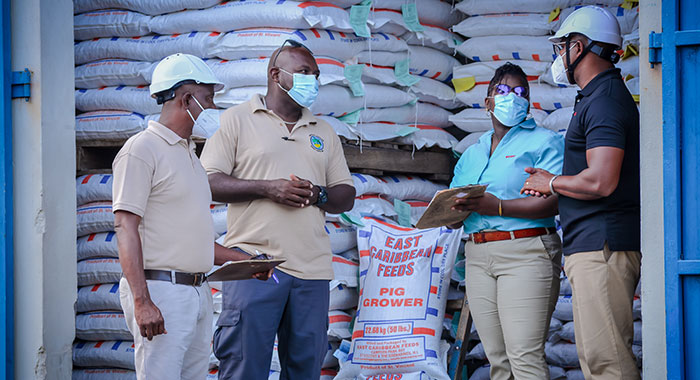East Caribbean Group of Companies (ECGC) has pledged EC$1Million to assist with the volcano relief effort across St. Vincent and the Grenadines.
In collaboration with its shareholders Maple Leaf in Canada, and some of its customers and suppliers, ECGC will provide support to its home market which is currently grappling with the uncertainty of continued volcanic eruptions while thousands of Vincentians remain displaced from their homes in the red zone in the north of St. Vincent.
“We are going to do everything possible to assist our country with the long-term rebuilding effort. Our pledge to this country is Excellence Through Teamwork, and we are committed to the recovery process. The farming community and many businesses and families we supply have been badly affected and over the next two years we will continue to give support,” J. Robert Cato, chief executive officer of ECGC said.
He further said that the board of directors, management and staff of ECGC stand in solidarity with the government and people of SVG “as we face this challenging time together”.
ECGC, the premier producer of flour, rice, animal feeds and beverages in St. Vincent and the Grenadines, has committed to provide ongoing assistance to recovery processes across the country over the next two and a half years.
Immediate relief will go toward supplies for displaced families and feed distribution for farm animals in the agricultural sector.
In the medium term, the company will support farmers by ensuring affordable costs for animal feed while maintaining relief to displaced families.
Long-term relief support will run into 2023 with the establishment of a sustained school feeding program along with increased support for farmers and other businesses affected by the disaster.






